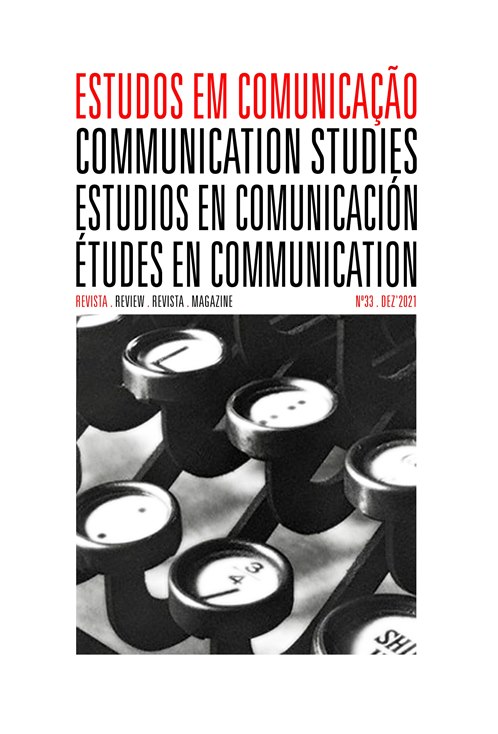Brazilian Military Dictatorship and New Cartographic Forms: Collective Memory and Collaborative Digital Maps
Mots-clés :
Collaborative digital maps, Collective memories, Military dictatorship, Internet, Cartography.Résumé
The current quest, on and offline, for the resignification of sites of memory referring to the Brazilian Military Dictatorship (1964-1985) motivates this investigation. Two collaborative digital maps, that illustrate collective memorial practices, have been selected as case studies. The description and analysis of these projects based on concepts such as space, time, silencing and participation indicate that: a) there is a movement drawing attention to silenced memories that are left aside within the urban space; b) the cartographies carry on meanings related to the intentionalities of their producers and participants; c) the data legitimacy is fostered by the usage of links to news and other important websites, as well as testimonies; and d) predominate the presentation of certain brazilian regions’ memories. The cultural phenomena indicate, therefore, ways of elaborating collective memories supported by digital media.Références
ASSMAN, J. Collective memory and cultural identity. New German Critique, n. 65, 1995.
AGUILAR, P. Memory and amnesia: The role of the spanish civil war in the transition to democracy. Oxford, New York: Bergham Books, 2002.
ALDERMAN, D. Street Names as Memorial Arenas: The Reputational Politics of Commemorating Martin Luther King Jr. in a Georgia County. Historical Geography, v. 30, 2002, 99-120.
BURKE, P. A escrita da história: novas perspectivas. São Paulo: Ed. UNESP, 2006.
HALBWACHS, M. A memória coletiva. São Paulo: Centauro, 2006.
HETHERINGTON, K. Rhythm and noise: the city, memory and the archive. The Sociological Review, 61: S1, 2013, 17–33.
HOSKINS, A. Anachronisms of media, anachronisms of memory: from collective memory to a new memory ecology. In: NEIGER, M.; MEYERS, O.; ZANDBERG, E. (Ed.). On media memory: collective memory in a new media age. United Kingdom: Palgrave Macmillan, 2011a, 278-288.
HOSKINS, A. Digital network memory. In: ERLL, A.; RIGNEY, A. (Ed.). Mediation, remediation, and the dynamics of cultural memory. Berlin and New York: Walter de Gruyter, 2009, 91-106.
HOSKINS, A. From collective memory to memory systems. Memory Studies, v. 4, n. 2, 2011b, 131-133.
HUYSSEN, A. Seduzidos pela Memória: arquitetura, monumentos e mídia. Rio de Janeiro: Aeroplano Editora, 2000.
JENKINS, H. A cultura da convergência. São Paulo: Editora Aleph, 2008.
KUCINSKI. B. “As ruas e os nomes”. In: K.: o relato de uma busca. São Paulo: Cosac Naify, 2014.
LE GOFF, J. História e memória. 7ª edição revista. São Paulo: Unicamp, 2013.
LÉVY, P. A inteligência coletiva: por uma antropologia do ciberespaço. 7 ed. São Paulo: Loyola, 2007.
NAS, P. Introduction: congealed time, compressed space; roots and branches of urban symbolic ecology. International Journal of Urban and Regional Research, v. 22, n. 4, 1998.
NORA, P. Entre memória e história: a problemática dos lugares. Projeto História, n. 10, 1993.
POLLAK, M. Memória, Esquecimento, Silêncio. Estudos Históricos, v. 2, n. 3, 1989.
READING A. Memory and digital media: six dynamics of the globital memory field. NEIGER, M.; MEYERS, O.; ZANDBERG, E. (Ed.). On media memory: collective memory in a new media age. United Kingdom: Palgrave Macmillan, 2011, 241-252.
SILVA et al. Dispositivos de memória e narrativas do espaço urbano. E-compós, Brasília, v.11, n.1, 2008, 1-17.
TELES, E. Edson Teles: depoimento. Entrevistadora: Ana Lúcia Mi- gowski da Silva. Entrevista concedida ao Projeto de Doutoramento da entrevistadora, ago. 2015/
THEMEN, D. Afterthoughts: A Participatory Historical Culture. In: ROZENSWEIG, R.; THEMEN, D. (Ed.). The presence of the past: Popular uses of history in American Life. New York: Columbia University Press, 1998.
Téléchargements
Publiée
Numéro
Rubrique
Licence

Cette œuvre est sous licence Creative Commons Attribution - Pas d’Utilisation Commerciale - Pas de Modification 3.0 non transposé.
Estudos em Comunicação / Communication Studies est un journal en libre accès. Tout son contenu est gratuitement disponible gratuitement pour l'utilisateur ou son institution. Les utilisateurs sont autorisés à lire, télécharger, copier, distribuer, imprimer, rechercher, ou un lien vers le texte intégral des articles de ce journal sans demander la permission préalable de l'éditeur ou de l'auteur. Estudos em Comunicação, par Labcom, est sous licence Creative Commons Atribuição-NãoComercial-SemDerivações 3.0 Unported. En soumettant votre travail à Estudos em Comunicação / Communication studies, vous confirmez que vous êtes l'auteur et possédez les droits d'auteur, que le contenu est original et non publié auparavant, et que vous acceptez les conditions de licence.

